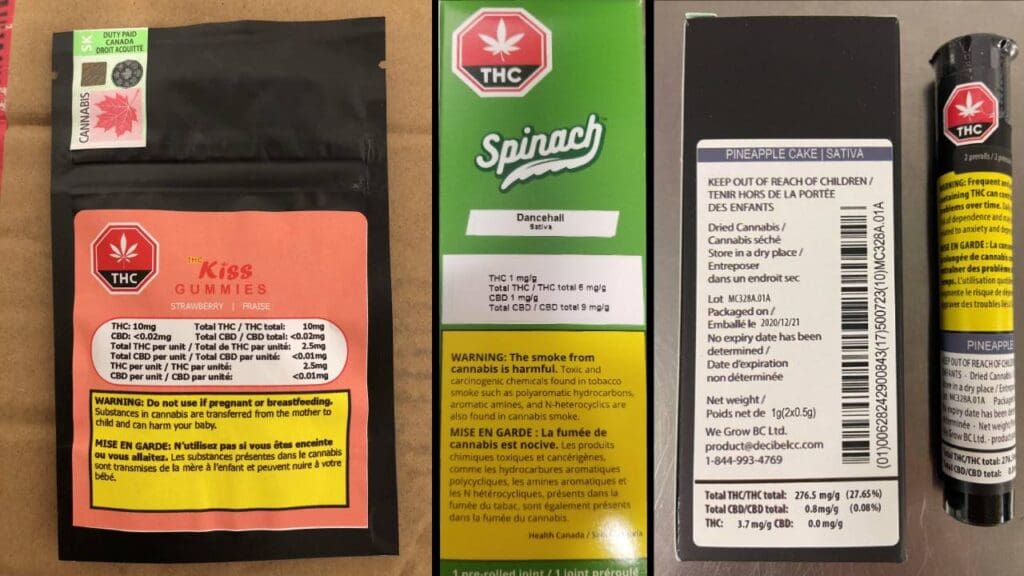Uncovering the Misreporting of Cannabis Edibles in Canada
In this article, we will dive deep into one of the recent issues in the misreporting of cannabis edibles in Canada.
Introduction to the Misreporting of Cannabis Edibles
Cannabis edibles have become increasingly popular among consumers in Canada since their legalization. These products offer a discreet and convenient way to consume cannabis, and their variety appeals to a wide range of preferences. However, the manufacturing and labeling processes for edibles are complex, leading to a significant amount of misreporting in the industry.
Factors Contributing to Misreporting
There are several factors that contribute to the misreporting of cannabis edibles in Canada. One of the main reasons is the lack of clear guidelines and regulations regarding the composition and labeling of these products. Due to the novelty of the cannabis edibles market, there is still a learning curve for both manufacturers and regulatory authorities.
Another contributing factor is the variation in testing methods and equipment used by different laboratories. This inconsistency can lead to discrepancies in the reported cannabinoid content, potency, and even the presence of contaminants in edibles. Without standardized testing procedures, it becomes difficult for consumers to make informed choices about the products they are purchasing.

This image is property of smartcdn.gprod.postmedia.digital.
Consequences of Misreporting
The misreporting of cannabis edibles can have serious consequences for both consumers and the industry as a whole. For consumers, inaccurate labeling can result in unintended intoxication or ineffective therapy. In some cases, the misreporting of cannabinoid content can lead to adverse reactions or health risks, particularly for individuals with underlying medical conditions or those taking other medications.
On the other hand, the reputation of the cannabis industry can suffer as a result of misreporting. With the legalization of cannabis, the industry has been striving for legitimacy and acceptance. However, the presence of misreported products can undermine consumer trust, potentially leading to decreased sales and hindering the growth of the industry.
Regulatory Measures in Place
To address the issue of misreporting, Health Canada has implemented certain regulatory measures. The Cannabis Act and its regulations outline requirements for labeling and packaging of cannabis edibles, including the mandatory display of THC/CBD content, serving size, and allergen warnings. These measures aim to enhance consumer safety and ensure transparency in the industry.
In addition, licensed producers of cannabis edibles are required to submit their products to authorized laboratories for testing before they can be sold to consumers. This step is crucial in verifying the accuracy of labeling information and providing consumers with reliable information about the products they are purchasing.

This image is property of mjbizdaily.com.
Challenges Faced by Regulatory Authorities
Despite the efforts of regulatory authorities, challenges remain in enforcing the regulations and addressing misreporting effectively. One of the main challenges is the lack of resources and personnel dedicated to cannabis product testing and oversight. This, coupled with the rapid growth of the industry, creates a gap in the ability to enforce regulations consistently.
Furthermore, the time-consuming process of laboratory testing can result in delays in product availability, leading to potential supply shortages and an increased likelihood of purchasing untested products. The regulatory authorities are faced with the task of striking a balance between ensuring consumer safety and promoting a thriving industry.
Quality Assurance Standards for Cannabis Edibles
To combat misreporting and ensure the quality of cannabis edibles, industry organizations and stakeholders have developed quality assurance standards. These standards outline best practices for manufacturing, packaging, labeling, and testing of cannabis edibles. By following these standards, manufacturers can provide accurate information about their products and minimize the risk of misreporting.
In addition, the use of accredited testing laboratories that adhere to standardized methodologies and equipment can enhance the reliability of testing results. This ensures that consumers can have confidence in the accuracy of the information provided on product labels.
Impact on Consumers’ Health and Safety
The misreporting of cannabis edibles can have significant implications for consumers’ health and safety. Inaccurate labeling can lead to unintentional overconsumption, resulting in adverse effects such as anxiety, paranoia, or even overdose. For medical cannabis patients who rely on accurate dosing, misreported edibles can disrupt their treatment plans and compromise their well-being.
Moreover, misreported products can pose risks to individuals with allergies or dietary restrictions. Without accurate allergen warnings and ingredient lists, consumers may unknowingly consume substances that could trigger allergic reactions or cause other health complications.
Efforts to Combat Misreporting
Various efforts have been made by industry organizations, regulatory authorities, and producers themselves to combat misreporting in the cannabis edibles sector. These include increased education on labeling requirements and good manufacturing practices, collaborations between industry stakeholders to develop standardized testing methodologies, and the development of tools to help consumers verify the authenticity and accuracy of product information.
Furthermore, Health Canada has been actively monitoring and inspecting cannabis edibles manufacturers to ensure compliance with labeling and testing requirements. Violations can lead to penalties, license suspensions, or even the revocation of licenses.

This image is property of www.ctvnews.ca.
Conclusion
The misreporting of cannabis edibles in Canada poses significant risks to consumers’ health, compromises the credibility of the industry, and hinders its growth. However, with the implementation of regulatory measures, the development of quality assurance standards, and the efforts of industry stakeholders, progress is being made to combat misreporting.
Insight Archives continues to play a vital role in highlighting this issue and providing valuable information to industry professionals and consumers alike. By staying informed about the challenges and developments in the cannabis edibles sector, we can all contribute to a safer and more trustworthy marketplace for cannabis products in Canada.

This image is property of mjbizdaily.com.

